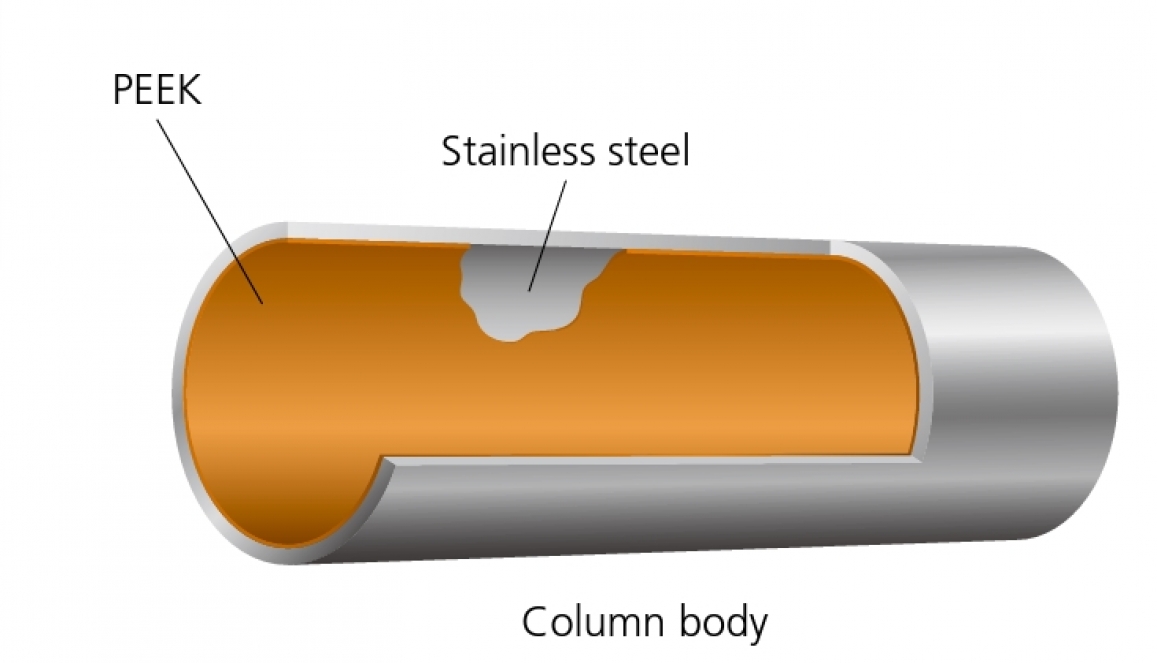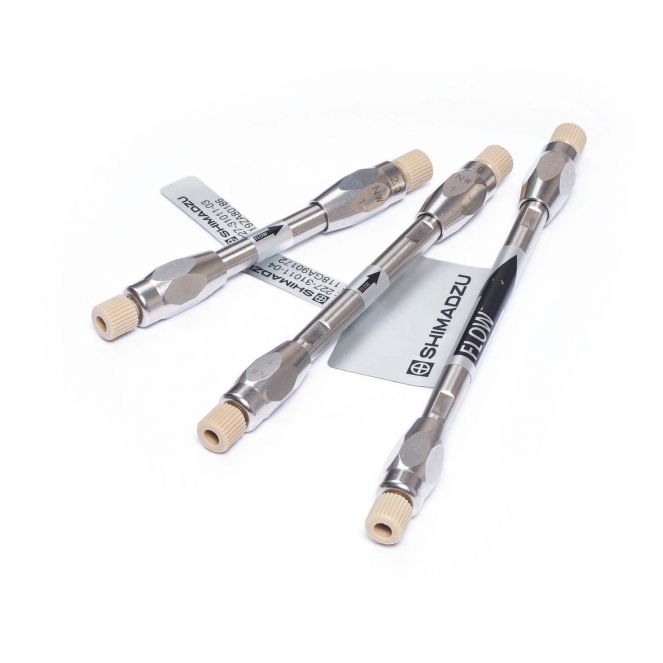Shim-pack Scepter (metal-free) is an inert column with a PEEK-lined stainless steel body designed for ultra-high-performance analysis. All wetted surfaces including the column body and frit are metal-free.
- Ideal for analysis of metal-coordinating and ion-adsorbing compounds such as phosphate-containing and basic analytes
- Outstanding pH and lifetime stability due to Scepter organic silica hybrid packing

Shim-pack Scepter C18-300 is wide-pore organic silica hybrid reversed phase columns recommended for the separation of proteins such as monoclonal antibodies and mid-sized molecules such as oligonucleic acids and peptides that may not be retained on 100-120Å pore size columns due to size-exclusion effects. The organic silica hybrid base material is highly stable even at high temperatures under acidic and basic mobile phase conditions. Pore sizes are optimized for large molecular weight compounds and dispersed uniformly in the column, resulting in symmetrical peak shapes and increased resolution of antibodies and nucleic acids compared to a smaller pore size column. Shim-pack Scepter C18-300 is also effective for high-sensitivity LC/MS analysis, producing good peak shapes even under weak ionpairing conditions using a formic acid mobile phase.
Pore Size-Dependent Selectivity
Shim-pack Scepter C18-300 has larger pore sizes than Scepter C18-120, a smaller carbon content, and a lower speci�c surface area. As a result, Scepter C18-300 exhibits weaker retention compared to Scepter C18-120, making it suitable for applications aimed at reducing analysis time, and for the analysis of compounds that are strongly retained and may have inconsistent retention times on typical C18 columns.


















